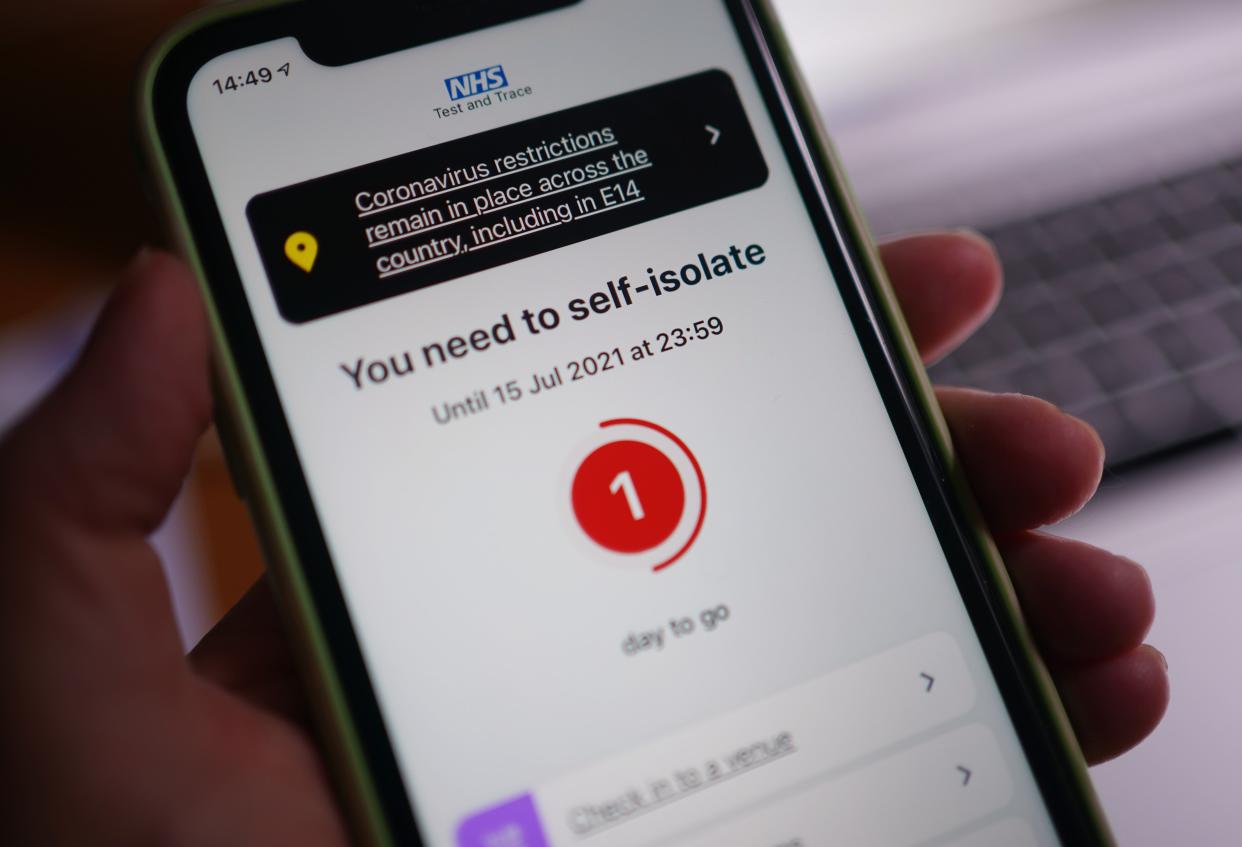NHS app notifications: The changes made to self-isolation alerts

The NHS Covid-19 app was significantly changed on Monday so fewer contacts will be told to self-isolate after a large increase in the number of people being pinged since lockdown restrictions ended last month.
This amounts to a significant shift for No10 who previously insisted the app would not be changed. But pressure has been mounting on ministers from multiple industries who have been hit be staff shortages after employees were “pinged” by the app and forced to stay at home.
The alteration to the app means that instead of checking contacts for five days before a positive test, the app will only go back two days.
It comes after almost 700,000 alerts were sent to people last week, a record since the app was launched.
The Independent has delved into what changes have been made to the app.
What changes were made to the NHS Covid app?
Health and Social Care Secretary Sajid Javid said the “logic” behind the app was being tweaked, although the sensitivity and risk threshold would remain unchanged.
The basic functionality of the app, which uses Bluetooth to track if you have been within two metres of somebody who has Covid, has not changed.
Instead it has been tweaked so that instead of checking contacts for five days before a positive test, the app will only go back two days.
What did the Health Secretary say about the alterations?
Mr Javid said: “We want to reduce the disruption that self-isolation can cause for people and businesses, while ensuring we’re protecting those most at risk from this virus. This update to the app will help ensure that we are striking the right balance.
“It’s so important that people isolate when asked to do so in order to stop the spread of the virus and protect their communities.”
The government is still encouraging people to continue using the app.
Has the app been effective at reducing hospitalisations and infections?
Analysis from the government has suggested that in the first three weeks of July the app could have averted up to 2,000 cases per day,
In addition it could have prevented more than 50,000 cases of Covid, including chains of transmission, assuming that 60% of users obeyed orders to self-isolate.
Scientists believe this would amount to preventing approximately 1,600 hospital admissions.
“The NHS Covid-19 app is a really practical example of how technology can be used to fight the biggest challenges we face in protecting and improving our health,” said Dr Jenny Harries, chief executive of the UK Health Security Agency.
“The app is the simplest, easiest and fastest way to find out whether you have been exposed to the virus, and it has saved thousands of lives over the course of this pandemic.
“I strongly encourage everyone, even those fully vaccinated, to continue using the app.
“It is a lifesaving tool that helps us to stay safe and to protect those closest to us as we return to a more familiar way of life.”
Additional reporting by PA

 Yahoo News
Yahoo News 
